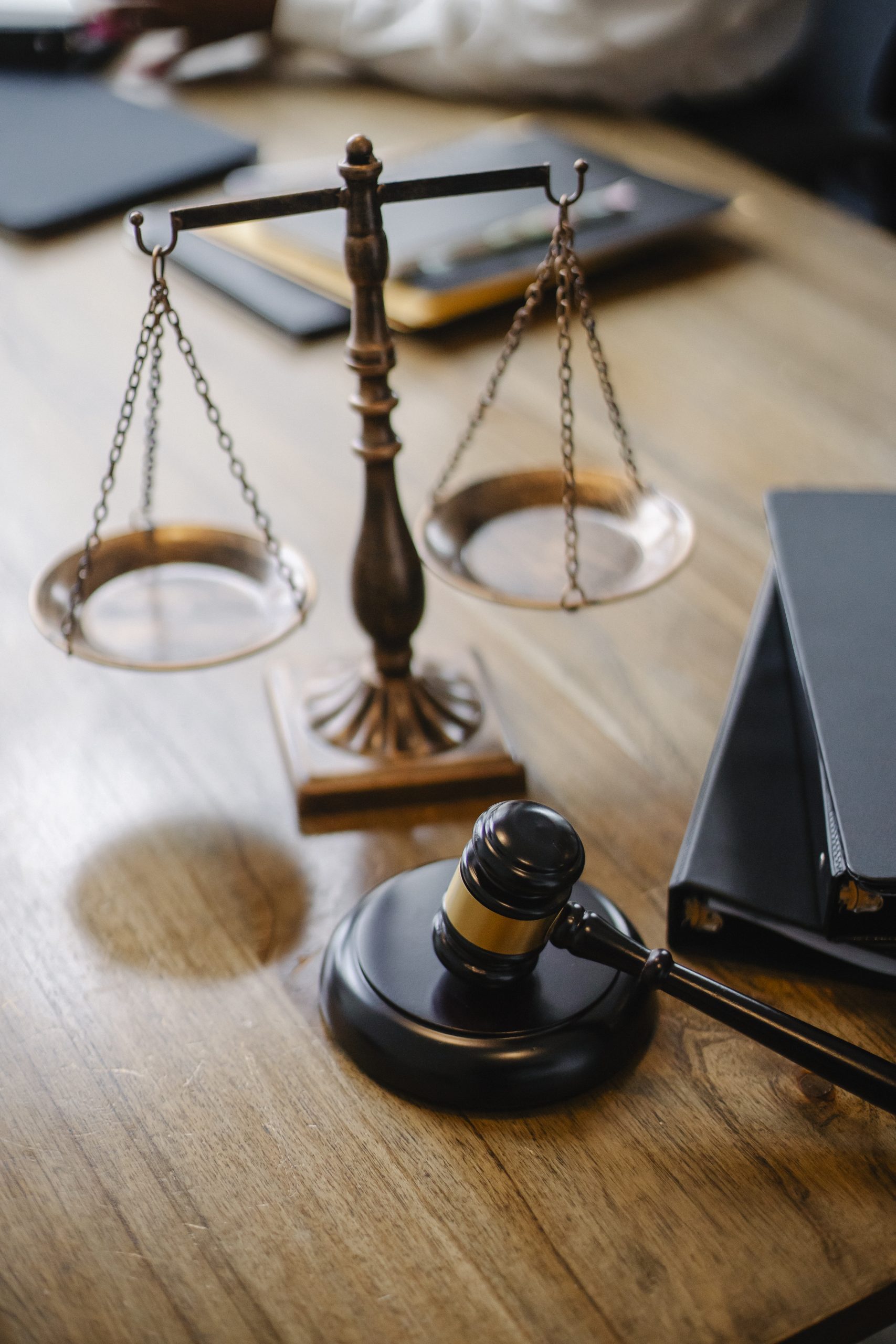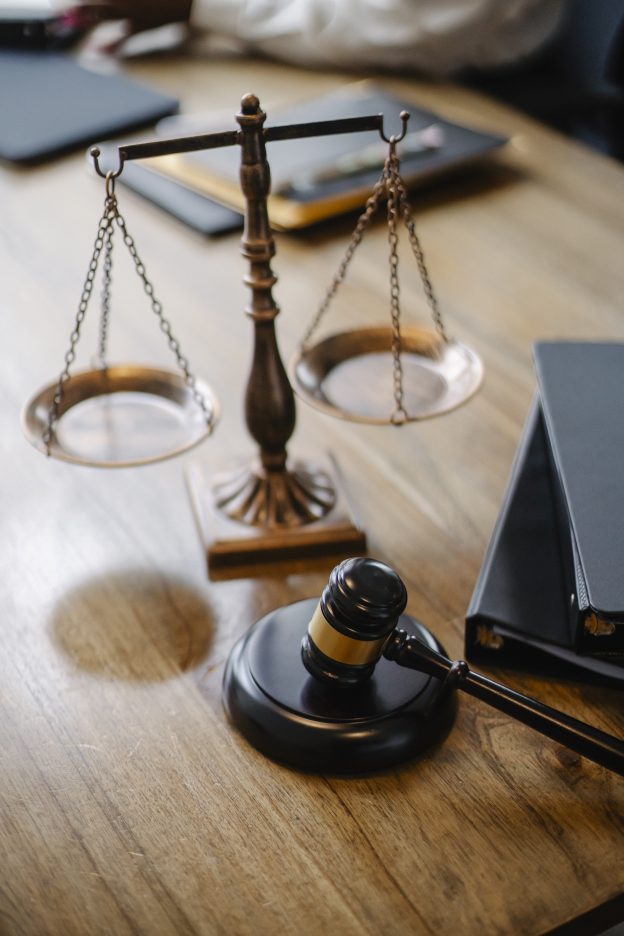If you find yourself facing criminal charges in South Jordan, Utah, it is crucial to have a skilled and experienced criminal defense attorney by your side. With a deep understanding of the complexities of the legal system, the lawyer listed on this website is dedicated to protecting your rights and providing you with a strong defense. Whether you are an individual or a business owner, this attorney can offer valuable guidance and representation. This article aims to provide you with comprehensive information about criminal defense in South Jordan, Utah, addressing common concerns and clarifying legal concepts. Through engaging case studies, real-life scenarios, and personal stories, we aim to instill confidence and create emotional connections with our readers. Don’t hesitate to take the next step and seek assistance promptly by calling the lawyer listed on this post. Your future deserves the best defense possible.
Understanding Criminal Defense
Criminal defense is a crucial aspect of the legal system that aims to protect the rights of individuals accused of committing criminal offenses. It plays a vital role in safeguarding the principle of “innocent until proven guilty” and upholds the constitutional rights of every individual, regardless of their alleged actions. This article will provide a comprehensive understanding of criminal defense, including its importance, different types of cases, and the process involved.
The Importance of Criminal Defense
Criminal defense is of utmost importance because it ensures that individuals accused of crimes have the opportunity to present their side of the story and receive fair treatment under the law. A robust criminal defense system serves as a safeguard against wrongful convictions, excessive penalties, or infringements upon an individual’s constitutional rights. Without effective criminal defense, the justice system would be imbalanced and susceptible to abuse.
Defining Criminal Defense
Criminal defense refers to the legal representation provided to individuals facing criminal charges. It involves carefully analyzing the evidence and building a strong defense strategy to challenge the prosecution’s case. Criminal defense attorneys protect their clients’ rights throughout the legal process, seek the best possible outcome, and advocate for their clients’ interests both in and out of the courtroom.

Types of Criminal Defense Cases
Criminal defense attorneys handle a wide range of cases, each with its own unique characteristics and legal considerations. Some common types of criminal defense cases include:
-
DUI and Traffic Violations: These cases involve charges related to driving under the influence of alcohol or drugs, as well as traffic offenses such as reckless driving or speeding.
-
Drug Crimes: Drug crime cases encompass offenses such as possession, trafficking, manufacturing, or distribution of controlled substances.
-
White Collar Crimes: White collar crimes involve non-violent offenses committed by individuals in professional or business settings, such as embezzlement, fraud, or insider trading.
-
Assault and Battery: These cases involve physical violence or the threat of violence against another person, ranging from simple assault to aggravated assault.
-
Domestic Violence: Domestic violence cases involve acts of violence or abuse between individuals in a familial or intimate relationship.
-
Theft and Robbery: Theft and robbery cases involve the unlawful taking of another person’s property with or without the use of force.
-
Sex Crimes: Sex crime cases encompass offenses such as rape, sexual assault, indecent exposure, or child exploitation.
-
Child Abuse: Child abuse cases involve acts of physical, emotional, or sexual abuse inflicted upon a child.
-
Homicide: Homicide cases involve the unlawful killing of another person, which can range from manslaughter to first-degree murder.
Each of these types of cases requires a skilled criminal defense attorney with expertise in the specific area of law to ensure the best possible outcome for the client.
Choosing a Criminal Defense Attorney
Selecting the right criminal defense attorney is crucial in protecting your rights and achieving a favorable outcome in your case. Here are several key qualities to look for when choosing a criminal defense attorney:
Experience and Expertise
One of the most important factors to consider is the attorney’s experience and expertise in criminal defense law. A seasoned attorney will have a deep understanding of the legal system, relevant laws, and potential defense strategies that can be employed to challenge the prosecution’s case.
Track Record of Success
Review the attorney’s track record of success in handling similar cases. Look for attorneys who have achieved favorable outcomes for their clients, including dismissals, reduced charges, or acquittals. A proven track record of success indicates an attorney’s ability to navigate complex legal matters and effectively advocate for their clients.
Communication Skills
Effective communication is vital when working with a criminal defense attorney. Choose an attorney who can clearly explain legal concepts, procedures, and potential outcomes in a way that you can understand. Open and transparent communication will ensure that you are well-informed throughout the process and enables you to actively participate in your defense.
Client Reviews and Testimonials
Consider reading client reviews and testimonials to gain insight into other clients’ experiences with the attorney. Positive reviews and testimonials speak to an attorney’s professionalism, competence, and ability to deliver results. They can provide valuable information about the attorney’s reputation and client satisfaction.
Initial Consultation
Schedule an initial consultation with the attorney to discuss your case. Use this opportunity to ask questions, assess their knowledge and expertise, and determine whether you feel comfortable working with them. A successful attorney-client relationship requires mutual trust, so it is essential to choose an attorney who understands your needs and is committed to achieving the best possible outcome for your case.

Criminal Defense Process
Understanding the criminal defense process is crucial for individuals facing criminal charges. While the exact process may vary depending on jurisdiction and the specifics of each case, the following are the general stages involved:
Arrest and Booking
The criminal defense process typically begins with an arrest. After an arrest, the individual is taken into custody and undergoes a booking process, during which personal information is collected, fingerprints and photographs are taken, and a record of the arrest is created.
Bail and Release
Following the arrest and booking, the court determines whether the accused will be released on bail or held in custody until the trial. Bail allows the accused to be released from jail by depositing a sum of money or other collateral to ensure their appearance in court.
Investigation and Evidence Collection
During this stage, the defense attorney investigates the case, interviews witnesses, gathers evidence, and assesses the strength of the prosecution’s case. They may also collaborate with experts to challenge the prosecution’s evidence or present an alternative interpretation of events.
Pre-Trial Motions
Before the trial begins, there may be various pre-trial motions, such as motions to suppress evidence or dismiss charges. These motions aim to exclude certain evidence, challenge the legality of the arrest, or request the dismissal of charges for lack of evidence or constitutional violations.
Negotiation and Plea Bargaining
In some cases, the defense attorney and the prosecution may engage in negotiation and plea bargaining. This involves discussions on potential plea agreements, which can result in reduced charges, lesser penalties, or alternative sentencing options.
Trial Proceedings
If a plea agreement is not reached, the case proceeds to trial. During the trial, the defense attorney presents evidence, cross-examines witnesses, and challenges the prosecution’s case. The judge or jury evaluates the evidence and determines the defendant’s guilt or innocence.
Sentencing
If the defendant is found guilty, a sentencing hearing is held to determine the appropriate penalties. The defense attorney can present mitigating factors or arguments for reduced penalties to obtain the most favorable outcome for the client.
Appeals Process
If the defendant is dissatisfied with the outcome of the trial or believes there were legal errors during the process, they may choose to appeal the decision. The appeals process involves presenting arguments to a higher court and seeking a review and potential reversal of the original decision.
Understanding the criminal defense process provides individuals with knowledge and insight into the steps involved in their case and empowers them to make informed decisions with the help of their defense attorney.
Common Criminal Offenses
Criminal offenses encompass a wide range of illegal activities, each with its own unique characteristics and legal implications. Below are some common types of criminal offenses:
DUI and Traffic Violations
Driving under the influence of alcohol or drugs, as well as traffic offenses such as reckless driving or speeding, falls under DUI and traffic violations. These offenses have severe consequences, including license suspension, fines, and potential imprisonment.
Drug Crimes
Drug crimes involve offenses related to the possession, trafficking, manufacturing, or distribution of controlled substances. The severity of drug crimes can vary depending on factors such as the type and quantity of drugs involved.
White Collar Crimes
White collar crimes refer to non-violent offenses committed in professional or business settings. These offenses include embezzlement, fraud, insider trading, money laundering, and identity theft. White collar crimes often involve complex financial transactions and require a sophisticated legal defense.
Assault and Battery
Assault and battery offenses involve physical violence or the threat of violence. Simple assault involves the threat of harm, while aggravated assault involves more serious harm or involves the use of a weapon.
Domestic Violence
Domestic violence includes acts of violence or abuse between individuals in a familial or intimate relationship. It encompasses physical, emotional, and sexual abuse and can have serious legal consequences for the accused.
Theft and Robbery
Theft and robbery involve the unlawful taking of another person’s property. Theft typically involves unauthorized taking, while robbery involves taking someone’s property by force or threat of force. The severity of the offense depends on the value of the stolen property and the circumstances surrounding the theft.
Sex Crimes
Sex crimes encompass a range of offenses, including rape, sexual assault, indecent exposure, and child exploitation. These offenses carry severe penalties and often have long-lasting consequences for the accused.
Child Abuse
Child abuse cases involve acts of physical, emotional, or sexual abuse inflicted upon a child. The justice system takes child abuse cases very seriously, and individuals accused of child abuse face significant legal consequences.
Homicide
Homicide cases involve the unlawful killing of another person. Depending on the circumstances and intent, a homicide can be classified as murder, manslaughter, or justifiable homicide.
Understanding the nature of different criminal offenses is crucial in recognizing the potential legal implications and seeking appropriate legal representation.
Benefits of Hiring a Criminal Defense Attorney
Hiring a criminal defense attorney is essential when facing criminal charges, as they provide numerous invaluable benefits. Some key benefits of hiring a criminal defense attorney include:
Protection of Rights
A criminal defense attorney ensures that all your constitutional rights, such as the right to a fair trial, the right to remain silent, and the right to counsel, are protected throughout the legal process. They act as your advocate and ensure that you are treated lawfully and with respect.
Legal Expertise and Strategy
Criminal defense attorneys have in-depth knowledge of criminal law and the legal system. They analyze the evidence, identify weaknesses in the prosecution’s case, and develop a strong defense strategy tailored to your specific circumstances. Their expertise and experience enable them to navigate complex legal matters effectively.
Defense Investigation
Criminal defense attorneys conduct a thorough investigation to gather evidence, interview witnesses, and explore any potential alternative explanations or defenses. They may collaborate with experts in various fields to challenge the prosecution’s evidence and present a compelling defense.
Reduced Charges and Penalties
A skilled criminal defense attorney aims to secure the best possible outcome for your case. They negotiate with the prosecution to seek reduced charges, lesser penalties, or alternative sentencing options whenever possible. Their ability to build a strong defense can lead to favorable plea agreements or acquittals.
Alternative Sentencing Options
In certain cases, a criminal defense attorney may seek alternative sentencing options, such as diversion programs, probation, or treatment programs, instead of imprisonment. This approach focuses on rehabilitation rather than punishment and can significantly impact the outcome of your case.
Courtroom Experience
Criminal defense attorneys are experienced in navigating courtroom procedures, presenting arguments, cross-examining witnesses, and building a persuasive case before judges and juries. Their courtroom experience is invaluable in maximizing your defense and effectively advocating for your rights.
Mitigating Damages
If you are found guilty or decide to enter a plea agreement, a criminal defense attorney can present mitigating factors to minimize the potential damages or penalties imposed. They advocate for leniency by highlighting factors such as remorse, lack of prior criminal history, or extenuating circumstances that may have influenced your actions.
Working with a Criminal Defense Attorney
Developing a strong and collaborative relationship with your criminal defense attorney is essential for a successful defense. Here are some key considerations when working with a criminal defense attorney:
Attorney-Client Privilege
Under the principle of attorney-client privilege, all communications between you and your attorney are confidential. Be open and honest with your attorney, as this will enable them to provide the best possible representation.
Open and Honest Communication
Maintaining open and honest communication with your attorney is crucial. Share any relevant information, details, or concerns related to your case. Clear and transparent communication will ensure that you and your attorney are on the same page throughout the legal process.
Providing Necessary Information
Provide your attorney with all relevant information, including any evidence, witnesses, or documentation that may support your defense. The more information your attorney has, the better they can craft a strong defense strategy.
Collaborating on Defense Strategy
Work closely with your attorney to develop a defense strategy that aligns with your goals and protects your interests. Your attorney will guide you through the legal process, explain the potential outcomes, and collaborate with you to make informed decisions.
Understanding the Legal Process
Familiarize yourself with the legal process and the stages involved in your case. Your attorney will explain the process to you and ensure that you understand your rights and responsibilities every step of the way.
Setting Realistic Expectations
Discuss your expectations with your attorney, including the potential outcomes of your case. While your attorney will strive for the best possible outcome, it is essential to have realistic expectations based on the specifics of your case and the applicable laws.
Working closely with a criminal defense attorney ensures that you are actively involved in your defense and have the best possible representation throughout the legal process.

FAQs: Criminal Defense in South Jordan, Utah
What should I do if I am arrested?
If you are arrested, it is crucial to remain calm and exercise your rights. Invoke your right to remain silent and request an attorney immediately. Refrain from providing any statements to law enforcement until you have legal representation.
How can a criminal defense attorney help with my case?
A criminal defense attorney provides legal representation, protects your rights, and develops a strong defense strategy based on the specifics of your case. They navigate the legal system on your behalf, negotiate with the prosecution, and advocate for the best possible outcome.
What factors should I consider when choosing a criminal defense attorney?
When choosing a criminal defense attorney, consider their experience, track record of success, communication skills, client reviews, and testimonials. Additionally, schedule an initial consultation to assess their knowledge, expertise, and compatibility with your needs.
What is the possible outcome of my criminal case?
The outcome of a criminal case depends on various factors, including the specific charges, the strength of the evidence, and the defense strategy employed. Potential outcomes can range from dismissals or acquittals to reduced charges, alternative sentencing options, or convictions with associated penalties.
Can I negotiate a plea deal instead of going to trial?
In many cases, it is possible to negotiate a plea deal with the prosecution. This involves discussions between your defense attorney and the prosecution to reach an agreement on reduced charges, lesser penalties, or alternative sentencing options. However, the decision to accept a plea deal ultimately rests with you, the defendant.
FAQs: DUI and Traffic Violations
What are the consequences of a DUI conviction?
The consequences of a DUI conviction can vary depending on the jurisdiction and the specifics of the case. They typically include fines, license suspension, mandatory DUI education programs, probation, community service, and potential imprisonment. Repeat offenses or aggravated circumstances can lead to more severe penalties.
Can I challenge the results of a breathalyzer test?
Yes, the results of a breathalyzer test can be challenged. Breathalyzer tests can be subject to errors, improper calibration, or faulty administration. A skilled DUI defense attorney can analyze the circumstances surrounding the test and identify potential defenses or issues that can be raised in court.
Are there any defenses against traffic violation charges?
Yes, there are various defenses against traffic violation charges. Common defenses include challenging the accuracy of radar or speed detection devices, contesting the legality of the traffic stop, or presenting evidence that mitigates the offense or supports a different interpretation of events.
Will my driver’s license be suspended?
If convicted of a DUI or certain traffic violations, your driver’s license may be suspended. The length of the suspension depends on the specific offense, prior convictions, and the laws of your jurisdiction. Your defense attorney can advise you on the potential impact on your driver’s license and explore any available options to minimize the suspension period.
How can an attorney help reduce the charges or penalties?
An experienced DUI and traffic violations defense attorney can negotiate with the prosecution to seek reduced charges or penalties. They can challenge the evidence, analyze the legality of the traffic stop, or present mitigating factors to advocate for a more favorable outcome. Their expertise in this area of law increases the chances of achieving a positive resolution to your case.
FAQs: Drug Crimes
What are the different drug crime classifications?
Drug crimes are typically classified into different categories based on the type and quantity of drugs involved, as well as the intent behind the possession or distribution. Common drug crime classifications include possession, possession with intent to sell or distribute, drug trafficking, and drug manufacturing.
Are all drug offenses considered felonies?
Not all drug offenses are considered felonies. The classification of drug offenses depends on various factors, including the type and quantity of drugs involved, the alleged intent, and the jurisdiction. Some drug offenses may be classified as misdemeanors, while others may be considered felonies.
Can a drug possession conviction be expunged?
Whether a drug possession conviction can be expunged depends on the laws of the jurisdiction and the specifics of the case. Expungement refers to the process of sealing or erasing a criminal record. Consulting with a criminal defense attorney will provide insight into the expungement eligibility and requirements in your jurisdiction.
What are the potential defenses for drug charges?
Potential defenses for drug charges can vary depending on the circumstances surrounding the case. Common defenses include challenging the legality of the search or seizure, contesting the accuracy of the evidence, questioning the chain of custody of the drugs, or presenting evidence of entrapment or coercion.
Will I go to prison for a drug conviction?
The potential for imprisonment in a drug conviction depends on several factors, including the type and amount of drugs involved, the offense classification, and the individual’s prior criminal history. Penalties range from probation and mandatory drug treatment programs to fines, community service, or imprisonment.
Is drug treatment an alternative to incarceration?
In some cases, drug treatment programs may be offered as an alternative to incarceration. These programs focus on rehabilitation, offering counseling, therapy, and educational programs to address the underlying issues contributing to drug addiction. Eligibility for drug treatment as an alternative to incarceration may depend on various factors, such as the individual’s criminal history, the nature of the offense, and the availability of treatment programs.
FAQs: Theft and Robbery
What is the difference between theft, robbery, and burglary?
Theft, robbery, and burglary are distinct offenses with specific legal definitions. Theft refers to the unlawful taking of someone else’s property without their consent. Robbery involves the use or threat of force to commit theft. Burglary is the unlawful entry into a building with the intent to commit a crime, typically theft.
What are the penalties for a theft conviction?
The penalties for a theft conviction depend on various factors, such as the value of the stolen property, the defendant’s criminal history, and the laws of the jurisdiction. Penalties can range from fines and restitution to probation, community service, or imprisonment.
Can a theft charge be expunged?
The possibility of expunging a theft charge depends on the laws of the jurisdiction and the individual’s specific circumstances. Expungement eligibility and requirements vary, and consulting with a criminal defense attorney will provide insight into whether expungement is an option in your case.
Are there any defenses for theft charges?
There are several defenses for theft charges that can be used depending on the specifics of the case. Common defenses include mistaken identity, lack of intent to permanently deprive the owner of the property, and consent from the owner to take the property.
Will I go to jail for a first-time theft offense?
The potential for jail time for a first-time theft offense depends on various factors, including the value of the stolen property, the defendant’s criminal history, and the laws of the jurisdiction. Depending on the circumstances, alternatives to jail, such as probation or diversion programs, may be available. A skilled criminal defense attorney can help navigate these options and seek the best possible outcome.
In conclusion, understanding the complexities of criminal defense is crucial for navigating the legal system when facing criminal charges. Hiring a skilled criminal defense attorney provides essential benefits such as protection of rights, legal expertise and strategy, and the potential for reduced charges or penalties. Working closely with your defense attorney and maintaining open communication are essential in building a strong defense. If you have further questions or require legal assistance in South Jordan, Utah, contact our experienced criminal defense attorney for a personalized consultation.



